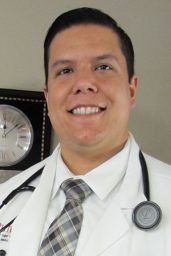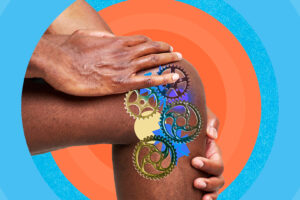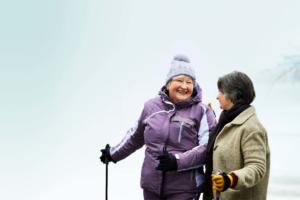When I decided to dedicate my professional practice to the field of geriatrics, I never imagined I someday would be helping to start up the new ACE unit at CentraState Medical Center. ACE stands for acute care for elders, which is a model of patient care that focuses specifically on the needs of adults age 65 and older.
We are living in the age of the “silver tsunami,” which is a term used to describe the aging U.S. population; in particular, the baby boomer generation. The U.S. Census Bureau estimates that by 2050, nearly 20 percent of the U.S. population will be age 65 or older. CentraState Medical Center is adopting the ACE model of patient care to ensure it is well prepared to meet the current and future health care needs of our aging population — and the generations that follow.
A safe and comfortable care environment
CentraState’s ACE unit offers a home-like care setting. All of the unit’s 42 patient rooms have special features to promote the highest levels of patient safety and comfort.
For example, oversized white boards are updated with the current date every day and bedside clocks are prominently placed to help maintain patients’ sense of orientation. The beds are positioned lower to the floor, and all the rooms have floor lighting to reduce the risk of falls. Patients have easy access to walkers and other mobility devices to help them get around easier. We encourage all patients to get out of bed to eat their meals and to keep as active as possible to maintain their strength and independence.
One of my favorite features in the unit is the lounge, which is a place for patients and families to visit with each other, or to chat with other patients and families. Group activities are also organized to facilitate social interaction with others. This is an important aspect of the care we provide because being in the company of others can improve one’s mood, and having a positive outlook can help the body heal and recover faster from an illness or injury.
A coordinated, person-centered approach to care
From the first day of admission, our team is here to warmly welcome new patients and help them get familiar with their surroundings. We have a dedicated interdisciplinary team consisting of a geriatrician, nurses, patient care technicians, physical therapists, pharmacists, pastoral care colleagues, and social workers serving the ACE unit at CentraState. This team works in close collaboration and makes regular rounds through the unit to ensure we are addressing the needs of every patient in our care.
All of our nurses have received special training with a virtual dementia tour that has given them a better understanding of the hardships experienced by elderly patients who may be feeling frustrated or agitated. The nursing team is also receiving additional training through an organization called Nurses Improving Care for Healthsystem Elders (NICHE) to further enhance their skills and knowledge in caring for older adults.
Discharge planning is also an important part of the care we provide in the ACE unit. We start preparing for a patient’s discharge on his or her first day of admission. Our case managers and social workers navigate families through the discharge process to ensure a seamless and simple transition from hospital to home, or to another care provider. We also can electronically refer patients to health coaches and specialized rehabilitation programs at CentraState’s Star and Barry Tobias Health Awareness Center.
Throughout every patient’s hospital stay, our overarching goal in the ACE unit is to help senior adults stay strong, mentally sharp and mobile so they can maintain their independence, get better faster and avoid additional health problems, as well as readmissions to the hospital. I am proud to be working with this wonderful team of caring professionals and easing the burden on family caregivers as well.
 Zeeshan Khan, MD is board-certified in family medicine, fellowship trained in geriatrics, and medical director of the ACE unit at CentraState Medical Center. For more information about the ACE unit, or to reach Dr. Khan, call 866-CENTRA7.
Zeeshan Khan, MD is board-certified in family medicine, fellowship trained in geriatrics, and medical director of the ACE unit at CentraState Medical Center. For more information about the ACE unit, or to reach Dr. Khan, call 866-CENTRA7.





